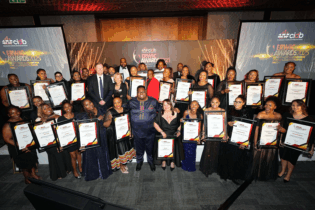The local property development sector, particularly the Cape Town-based construction industry is disintegrating, due to the City’s slow tendering and procurement process.
Towards the end of 2018, the Western Cape Property Development Forum (WCPDF) called an Industry Workgroup to deal with the issues around procurement as it affected development proposals, consultants and contractors. “There is a lot of dissatisfaction in the industry with the way built environment goods and services are procured by the City,” says workgroup convenor, Chris Steffen. Steffen was asked to be part of a panel discussion at the recent WCPDF’s annual conference, specifically to represent built environment professionals on the challenges around the City’s procurement procedures. As a result, Steffen compiled a survey comprising 11 questions which was completed by 104 consultants in the Cape Town area and included quantity surveyors, architects, engineers and project managers. “Many of the complaints and dissatisfaction you hear about tendering for professional services from fellow industry members is verbal. I could not be part of a public forum and simply reflect hearsay, hence my decision to conduct my own research so that I had some hard evidence to reference.”The highest level of concern was expressed by 84% of respondents, who said that in order to be competitive, it was expected by the City that submissions reflect prices far below what was considered to be fair and reasonable within the industry.
“When comparing fees offered in a tender to the various accepted guideline fee tariffs of the various industry professionals, it has been experienced that discounts of anywhere from between 50- to 80% need to be offered, if the tender applicant is to be in any way competitive when compared to the other tenderers. Unfortunately the City’s adjudicators appear to accept that super discounts are acceptable.” The result also showed an increasing number of complaints about poor quality of work being produced by consultants, particularly against smaller firms, adds Steffen. “What will our urban spaces look like in a few years when insufficient time has been allowed for the creative process of design? The actual building will probably stand up and its design will be ok, but how well will it endure and how best is its fit against the purpose for which it was constructed in the first place?” Concerns around fee cutting to significantly below market rates to a point where they were no longer competitive were also elaborated upon significantly in written comments provided by the respondents, along with onerous – and many felt, excessive or even superfluous – criteria that came with submitting tenders.Among other significant findings in the survey were:
- Of the 104 respondents, 81% said they submitted tenders for professional services to the City of Cape Town, with 38% having said only selectively and only 43% said they were satisfied with the sufficiency and clarity of the description of services given by the City.
- In answer to the question whether tenders were generally adjudicated and awarded within the tender validity period, 65% responded either never (22%) or sometimes (43%).
- However, in addition to this, only 20% of respondents noted that their submissions were getting between a 10- and 30% conversion rate into actual contracts awarded.






